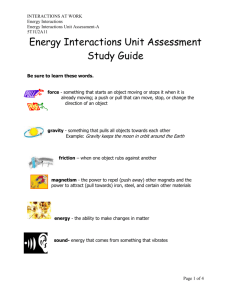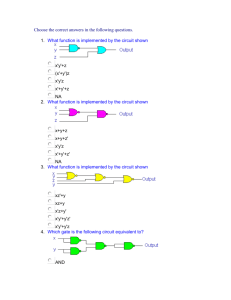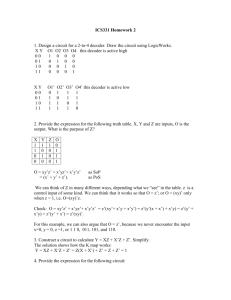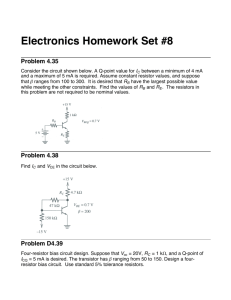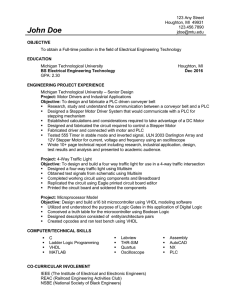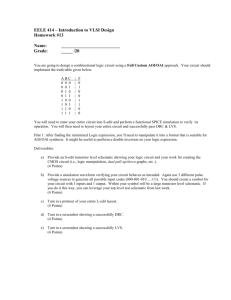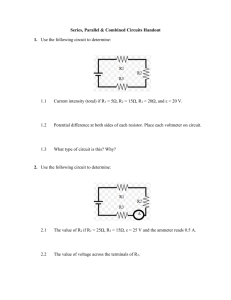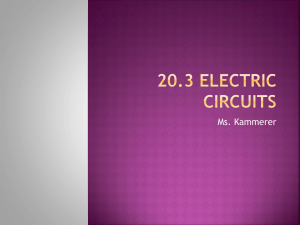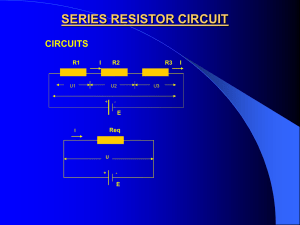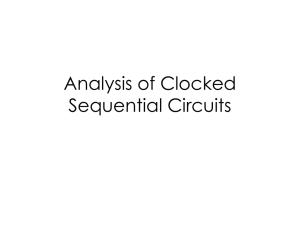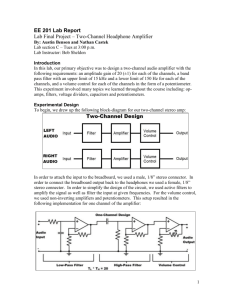System realization (Circuit to implement block diagram)
advertisement
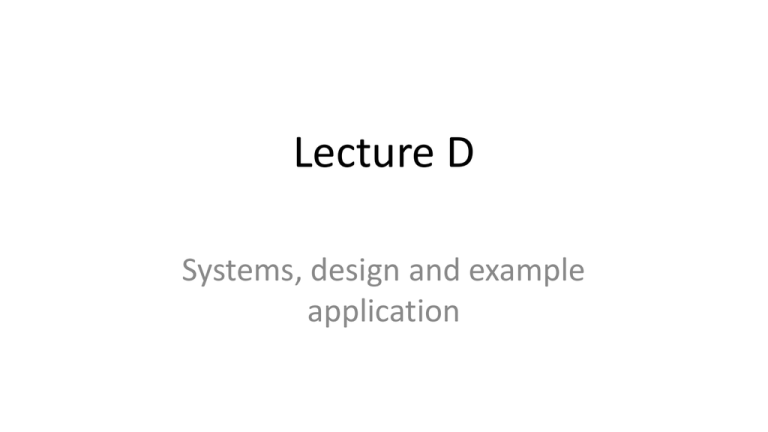
Lecture D Systems, design and example application Systems • It is sometimes convenient to represent a set of components as a system • The components can be electrical, mechanical, thermal… • Whatever their physical nature, we can think of the components as being energy storage and energy dissipation elements • The energy can be electrical, mechanical, thermal… • The system transfers energy to perform some task Input-output relations • The system has some input and some output • The input is provided to the system from the environment • The output is provided to the environment by the system • The system itself becomes a “black box” Input (Applied by external environment to system) Output Physical “device” (Provided by system to external environment) • Demos: – Tuning fork – TV monitor (tuning fork input, impulsive input) – DC motor System modeling and analysis • The system is often modeled as a mathematical relationship between the input and output: • Example: inverting voltage amplifier: Notes on system modeling • The definition of inputs and outputs can be somewhat arbitrary • Appropriate input, output definitions can simplify overall model • We sometimes start thinking of the system in terms of the model governing the system • It can be easy to forget that the system is a physical “thing” • We may not even care whether the system is mechanical, electrical, thermal… • Example: – DC motor output may be torque or motor speed Example: Position control system • “Plant” model: Example: Position control system • Block diagram of closed-loop control system: System realization (Circuit to implement block diagram) Signal conditioning circuit • Circuit implementation: • Frequency response: • Demo acoustic sensor – Low sensitivity, high noise • Demo low-pass filter – Higher sensitivity, reduced signal-to-noise ratio • Frying pan analogy System realization (Circuit to implement block diagram) Difference amplifier System realization (Circuit to implement block diagram) Compensator • Demo closed-loop control
